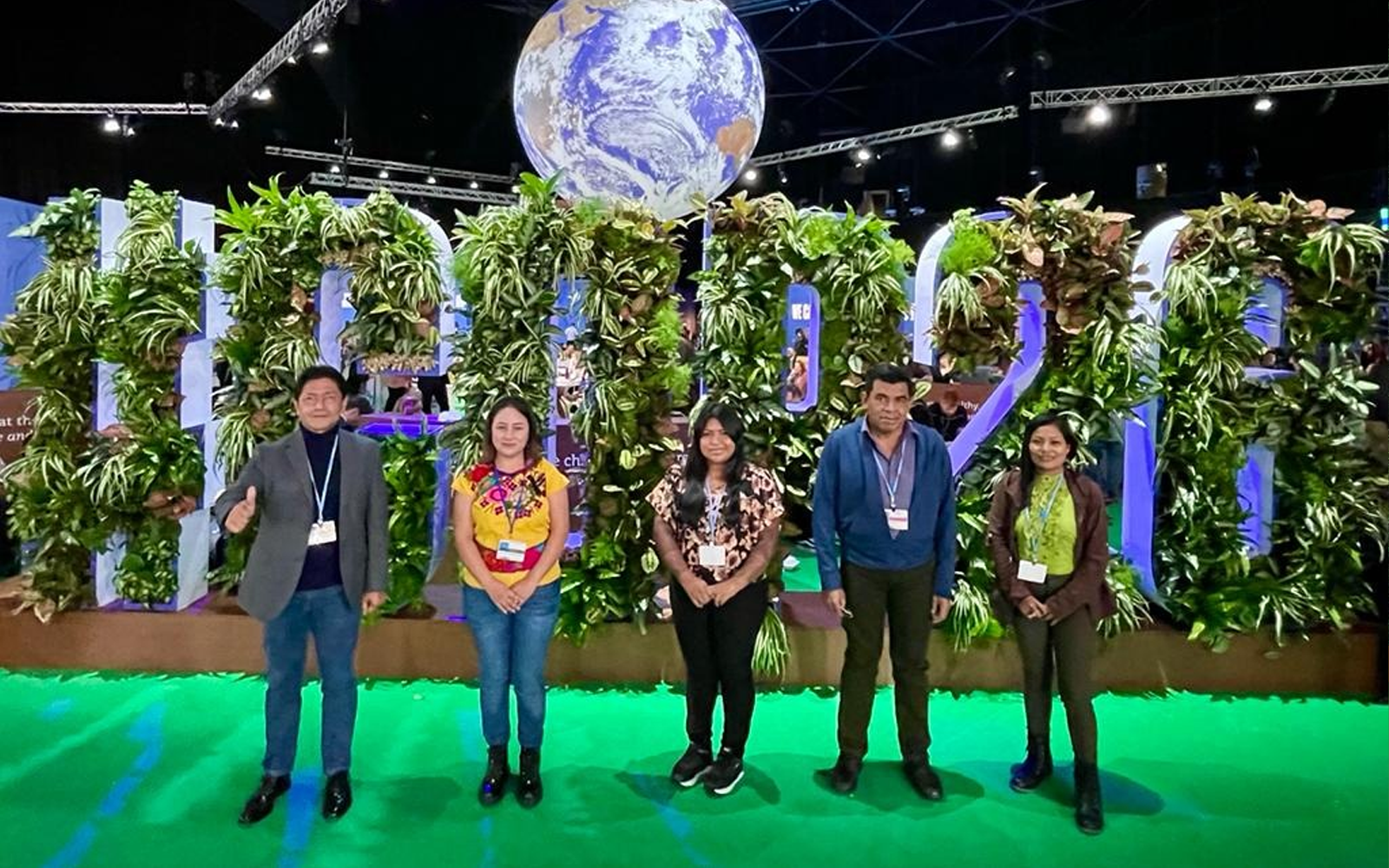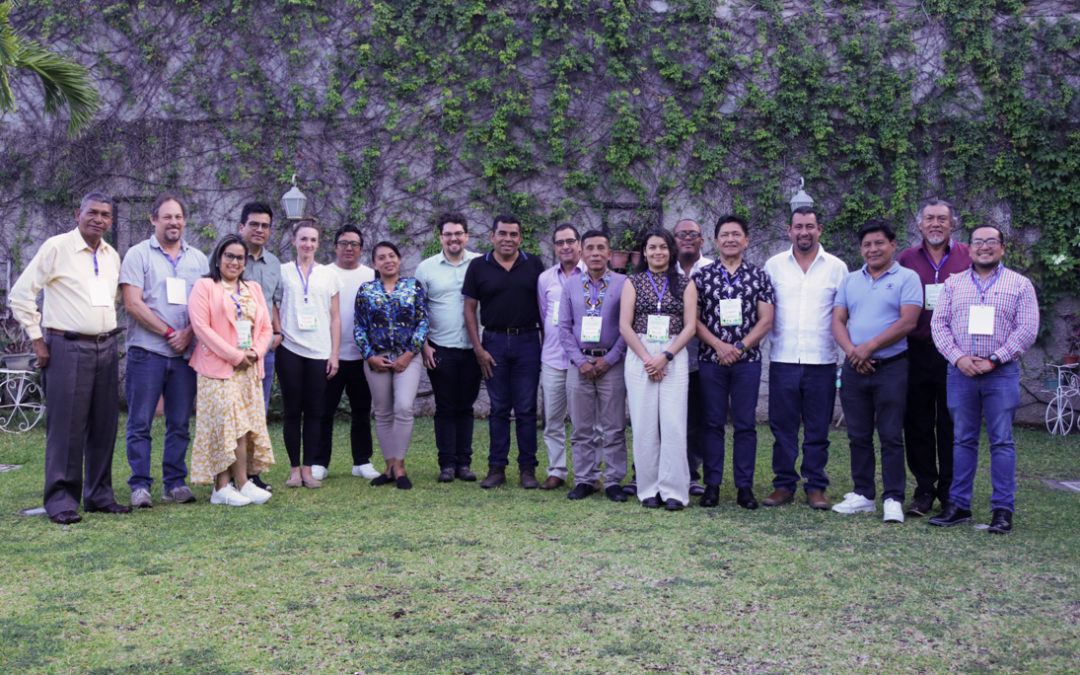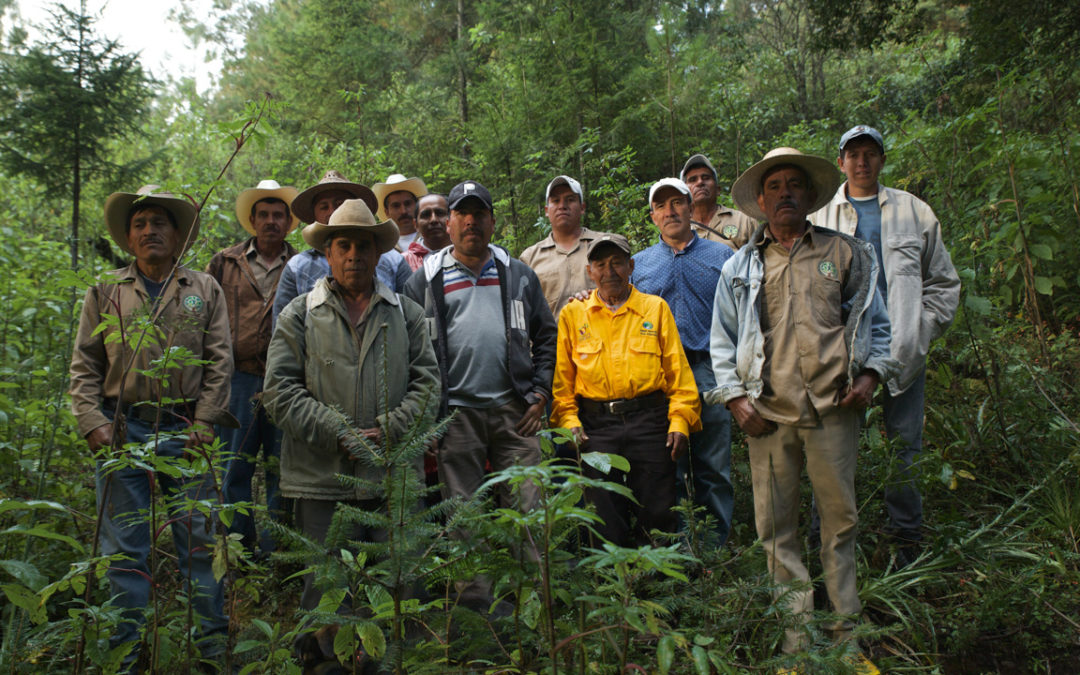This November 1st, at the same time as COP26 workdays begin, in Glasgow, Scotland, United Kingdom, a strong delegation from the AMPB arrives. We come armed with strong ideas and success stories from indigenous peoples, local communities, and Mesoamerican forests in the fight against climate change.
From the AMPB we have made our fight for the defence of territorial rights, our efforts against climate change and the conservation of biodiversity internationally visible, we have called for attention to a region that offers solutions to global problems through the defence and implementation of territorial rights, and we have accompanied our member organizations in the development of strategies for advocacy at the national level. We have also been successful in building capacities and promoting local knowledge sharing. In particular, the evolution of the Mesoamerican School of Leadership, which organizes and carries out training for young people, women and emerging leaders in all the territories of the AMPB and, more broadly, represents a significant step towards ensuring a more inclusive leadership of the forestry organizations for years to come. Through the Coordinator of Territorial Women Leaders of Mesoamerica, we strengthen the incidence of women leaders in the region and their solutions for climate resilience.
We have worked with key regional partners, such as the Mesoamerican Territorial Fund (FTM), a funding mechanism that channels direct climate finance to community and indigenous forestry organizations. In November 2020, we launched a pilot program for the FTM, through which you can work with your members to test the concept and ensure that each group has the administrative support they need to use these funds effectively and sustainably.
We will have the participation of our indigenous leaders who, through various spokespersons, will bring our messages and our most successful case studies and development to the eyes of the world. Here we present them:
Levi Sucre, an indigenous person from the Bribri people of Costa Rica. He currently directs the technical and organizational management of the Red Indígena Bribri-Cabécar (RIBCA), a group of eight indigenous territories in Costa Rica. He is a farmer and specialist in indigenous organizations and cultures and the environment in Central America. He comes from the Talamanca Cabécar indigenous territory in Costa Rica and has more than 20 years of experience in rural development and community organization, and 15 years of experience in designing, implementing and evaluating projects in indigenous territories and local communities. Levi is the Coordinator of the Mesoamerican Alliance of Peoples and Forests.
Gustavo Sánchez, President of the Mexican Network of Forest Peasant Organizations (Red MOCAF), an organization made up of local and regional organizations that own, manage and use forest lands. He has studiis in Agricultural Economics and has more than 20 years of experience in peasant and indigenous organizations, as well as in designing and influencing public policies for the rural and forestry sector. He has served as a member of the Executive Commission of the Mesoamerican Alliance of Peoples and Forests.
Sara Omi, an indigenous woman from the Embera People of Panama. She is a lawyer and has specialized in indigenous rights issues. She is an advisor and member of the Embera-AMARIE Artisan Women Association. She was president of the Alto Bayano Congress of Panama and chairs the Coordinator of Territorial Women Leaders of Mesoamerica, a platform for political dialogue between women from the territorial bases of the Mesoamerican Alliance of Peoples and Forests.
Nansedalia Ramírez is a 23-year-old woman from Tecpan de Galeana in the State of Guerrero in Mexico, who began her work in the Ejido Cordón Grande, as a community forestry promoter, encouraging the participation of young people and women in community forest management issues.
Heylin Sánchez, an indigenous woman from the Bribri peoples, Talamanca Cabécar territory. Since 2019, she has participated in the solar panel project with the Love for Life organization and the local government, installing panels and giving workshops on gender equality. She is also part of the Commission of Women Leaders of the Bribri-Cabécar Indigenous Network (RIBCA). Currently, Heylin is the Coordinator of the Solar Program’s Women’s Empowerment Program.
Manuel Martínez, a forestry community member of the Association of Forest Communities of Petén (ACOFOP) in the Maya Biosphere Reserve of Guatemala. He is 37 years old, he was born in Mexico as a result of the country’s internal armed conflict, his community was massacred by the country’s army. After returning to Guatemala, he dedicated himself to participating in training processes since 1998. He has worked as a community forestry technician, community tourism guide, the preparer of popular food and beverages, and organic agriculture technician among others. He is currently a facilitator of the Mesoamerican Leadership School of the Mesoamerican Alliance of Peoples and Forests.
Sergio Guzmán is from Guatemala, he has a master’s degree in forest management in the tropics and sub-tropics, graduated in nature conservation techniques and strategies. 15 years of experience in community forest management issues and climate change mitigation projects in the Maya Biosphere Reserve.
What is the agenda that brings us to Glasgow at this COP?
Indigenous Peoples and Local Communities (IPLC) are acting on the front lines of the climate crisis; their territories are home to 24% of the world’s carbon and are highly vulnerable to the effects of climate change.
Only a small part of the climate finance committed to date directly supports indigenous peoples and local communities; New mechanisms are needed to connect more meaningfully with local rights holders. Such mechanisms should better represent and connect with local realities, through less intermediation, greater local control and responsibility, and more direct investment in community governance, resource management, and community enterprises.



